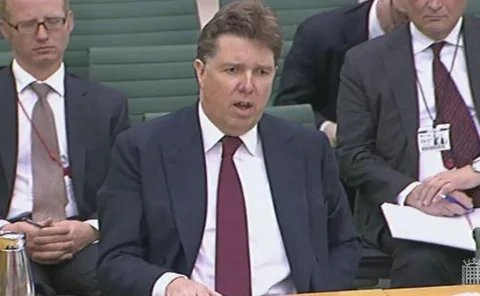Macro-prudential
HKMA tightens restrictions on bank loans as risks rise
The city’s de facto central bank is trying to contain credit risk among banks as their exposure to housing developers is growing
Banks mull dedicated IFRS 9 capital buffers
Volatility of loan-loss provisioning from new accounting standard demands additional own-funds protection, say banks
LTV ratio more effective than DTS in Canada – BIS paper
Paper examines the effect of recent macro-prudential policies targeting the housing market, finding households will borrow more if they can
Let the market regulate banks – FDIC’s Hoenig
Vice-chairman offers proposal that would take an axe to risk-based capital, stress testing and parts of the Volcker rule
BIS paper says macro-pru is better when partnered with monetary policy
Macro-pru does not work as well when it acts as a substitute for monetary policy when dampening credit cycles; when deployed as the main instrument, policies prove very successful even in the short term
IMF urges new macro-pru tools for RBNZ to tackle housing market
Debt-to-income tools would complement existing macro-prudential toolkit and help rein in household credit, fund says; RBNZ in pursuit of such powers but decision must come from government
Growth of shadow banks led by risky investment vehicles – FSB
Shadow banks continue to gain ground, with those offering liquidity and maturity transformation showing some of the fastest growth
Macro-pru can offer ‘breathing space’ for Australian housing
Apra’s actions “will not address pressures”, but will provide “breathing space” as they should lessen the amplification of house prices, says RBA’s Lowe
Price disparity in housing market a cause for concern, says RBA’s Lowe
Australian house prices rising ‘briskly’ in some sectors, says governor of the Reserve Bank of Australia
Credit booms make for more severe recessions – BoE paper
Authors find credit growth is a more reliable predictor of the severity of recessions than debt
Denmark is ‘not yet’ in a housing bubble – Rohde
Governor says current housing taxes are “destabilising”, and have had to be countered with macro-prudential policy
Rajan and Weber: central banks may fail next crisis test
Heavyweight economists say central banks may well find themselves intervening at the next major liquidity crisis, despite ostensible progress on resolution
Volcker fights back as prop-trading ban comes under attack
Former Fed chair tells Risk.net that calls for total overhaul of eponymous rule are misplaced
IMF warns bad political choices could trigger instability
Fund says financial stability has improved, but high risks remain in China, Europe and the US
Research finds ways to tame FRTB’s biases in forex charges
New paper shows ways to reduce influence of reporting currency
Riksbank cautious on plans for new macro-prudential tools
Central bank broadly welcomes government proposals but takes issue with elements it sees as limiting flexibility
Kashkari rejects Dimon’s claims on too big to fail
Minneapolis Fed chief rebuts assertion by JP Morgan CEO that US banks are no longer too big to fail; says capital is too low, not too high
Congress urged to curb Fed’s regulatory powers
House hearing revives the debate on consolidating US regulatory agencies
Tarullo admits Volcker rule may be ‘too complicated’
Outgoing Fed governor says Volcker rule probably needs adjustment, though he warns against any measures that would weaken the capital regime
Fed paper searches for optimal bank capital
Study weighs higher cost of equity against the reduction in costly financial crises implied by higher capital, estimating an optimal figure
Debelle sets timeframe for adoption of forex global code
Market participants will have six to 12 months to adjust practices once the code is published on May 25
Tucker: policymakers should focus on resilience and clarity
Central banks would gain legitimacy if they could better explain their models of systemic crises, and if politicians specified a particular risk tolerance, says former BoE deputy governor Paul Tucker
Basel Committee outlines enhanced disclosure framework
Revised Pillar 3 standard adds “dashboard” of banks’ key prudential metrics and consolidates all existing Basel Committee disclosure requirements
Basel Committee to retain provisioning treatment as IFRS 9 launches
Committee admits differences across countries are likely to remain in the interim, while it works to design a new approach to the regulatory treatment of expected credit losses






















